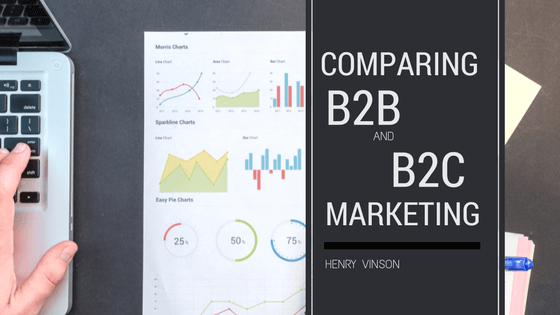All businesses have the same marketing goal: to sell products. Effective marketing is essential to the success of any business, regardless of the size. Businesses use a wider range of marketing methods to reach their audience. Marketing programs need to be tailored to the specific audience in order to generate results.
B2B and B2C Defined
There are two categories of marketing – B2B and B2C. What do the acronyms mean? Business-to-business (B2B) companies market products and services to other businesses, while business-to-consumer (B2C) marketing targets individual consumers.
Key Differences
While B2B and B2C businesses use similar marketing programs, such as events and advertising, differences exist in strategy, goals, timelines, and execution.
Marketing Goals
B2B marketing focuses on increasing brand awareness. B2C marketing is about customer satisfaction and retention.
Voice
B2B marketing can use industry jargon while in B2C marketing the messages need to be in simpler language and relatable to a majority of customers.
Drivers
B2B purchase decisions tend to be made logically and rationally and are driven by need and budget. B2C purchase decisions are emotionally-based and driven by want more than need.
Decision-Makers
B2B marketing involves multiple decision-makers and stakeholders, including technical staff, managers, executives, etc. The B2B marketing needs to address pain points and needs of various stakeholders and decision-makers, B2C marketers generally have one decision-maker, the individual buyer.
Customer Volume
B2B markets are generally small vertical markets with only a few thousand sales prospects. With fewer customer options available, and the marketing strategies need to be more targeted. B2C marketing allows for more flexibility and room to experiment with different tactic.
Types of Buyers
B2B marketing targets buyers based on their professional position and job title, department, company and budget sizes are important factors in determining marketing strategies. B2C marketing is based on demographics and targets the individual consumer. Age, gender, race, interests and spending hobbies are some examples of the information marketers would use in crafting marketing strategies.
Buying Decision
Because B2B marketing is targeted at businesses and professionals, buying decisions are made logically and rationally. B2C marketing appeals to a customer’s emotions.
Purchase Process
The B2B purchase process in long and can be complex and is based on building relationships and trust with customers. The B2C purchase process is short and sale is immediate.
Content
In B2B marketing, industry jargon and business buzzwords can be used in all marketing content. B2C marketing needs to appeal to a wider audience and should be clear, simple and relatable.

